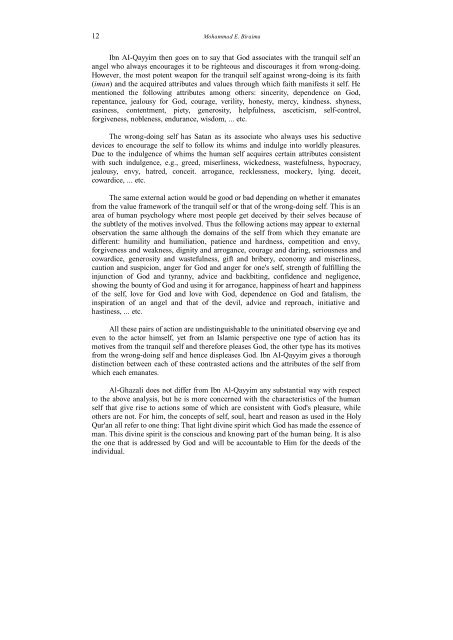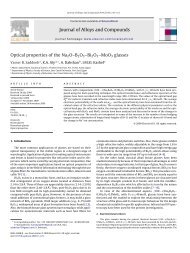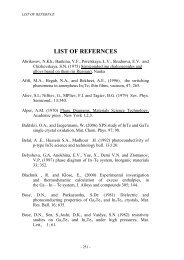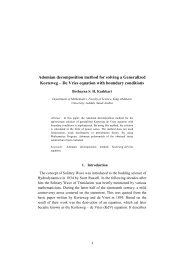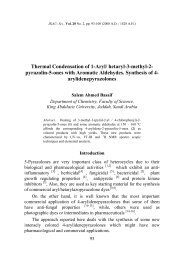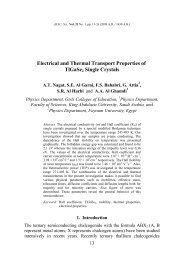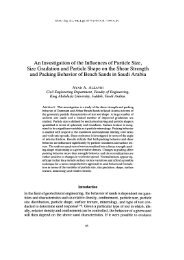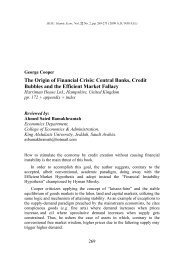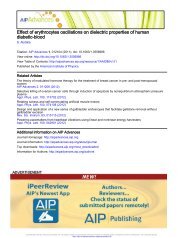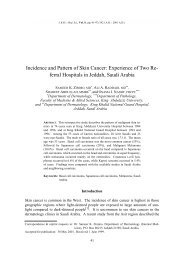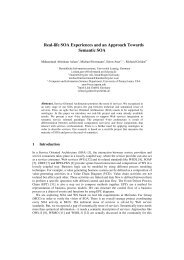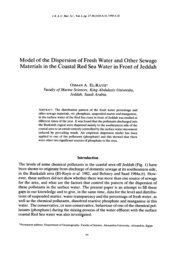A Qur'anic Model for a Universal Economic Theory
A Qur'anic Model for a Universal Economic Theory
A Qur'anic Model for a Universal Economic Theory
Create successful ePaper yourself
Turn your PDF publications into a flip-book with our unique Google optimized e-Paper software.
12 Mohammad E. Biraima<br />
Ibn AI-Qayyim then goes on to say that God associates with the tranquil self an<br />
angel who always encourages it to be righteous and discourages it from wrong-doing.<br />
However, the most potent weapon <strong>for</strong> the tranquil self against wrong-doing is its faith<br />
(iman) and the acquired attributes and values through which faith manifests it self. He<br />
mentioned the following attributes among others: sincerity, dependence on God,<br />
repentance, jealousy <strong>for</strong> God, courage, verility, honesty, mercy, kindness. shyness,<br />
easiness, contentment, piety, generosity, helpfulness, asceticism, self-control,<br />
<strong>for</strong>giveness, nobleness, endurance, wisdom, ... etc.<br />
The wrong-doing self has Satan as its associate who always uses his seductive<br />
devices to encourage the self to follow its whims and indulge into worldly pleasures.<br />
Due to the indulgence of whims the human self acquires certain attributes consistent<br />
with such indulgence, e.g., greed, miserliness, wickedness, wastefulness, hypocracy,<br />
jealousy, envy, hatred, conceit. arrogance, recklessness, mockery, lying. deceit,<br />
cowardice, ... etc.<br />
The same external action would be good or bad depending on whether it emanates<br />
from the value framework of the tranquil self or that of the wrong-doing self. This is an<br />
area of human psychology where most people get deceived by their selves because of<br />
the subtlety of the motives involved. Thus the following actions may appear to external<br />
observation the same although the domains of the self from which they emanate are<br />
different: humility and humiliation, patience and hardness, competition and envy,<br />
<strong>for</strong>giveness and weakness, dignity and arrogance, courage and daring, seriousness and<br />
cowardice, generosity and wastefulness, gift and bribery, economy and miserliness,<br />
caution and suspicion, anger <strong>for</strong> God and anger <strong>for</strong> one's self, strength of fulfilling the<br />
injunction of God and tyranny, advice and backbiting, confidence and negligence,<br />
showing the bounty of God and using it <strong>for</strong> arrogance, happiness of heart and happiness<br />
of the self, love <strong>for</strong> God and love with God, dependence on God and fatalism, the<br />
inspiration of an angel and that of the devil, advice and reproach, initiative and<br />
hastiness, ... etc.<br />
All these pairs of action are undistinguishable to the uninitiated observing eye and<br />
even to the actor himself, yet from an Islamic perspective one type of action has its<br />
motives from the tranquil self and there<strong>for</strong>e pleases God, the other type has its motives<br />
from the wrong-doing self and hence displeases God. Ibn AI-Qayyim gives a thorough<br />
distinction between each of these contrasted actions and the attributes of the self from<br />
which each emanates.<br />
Al-Ghazali does not differ from Ibn Al-Qayyim any substantial way with respect<br />
to the above analysis, but he is more concerned with the characteristics of the human<br />
self that give rise to actions some of which are consistent with God's pleasure, while<br />
others are not. For him, the concepts of self, soul, heart and reason as used in the Holy<br />
Qur'an all refer to one thing: That light divine spirit which God has made the essence of<br />
man. This divine spirit is the conscious and knowing part of the human being. It is also<br />
the one that is addressed by God and will be accountable to Him <strong>for</strong> the deeds of the<br />
individual.


